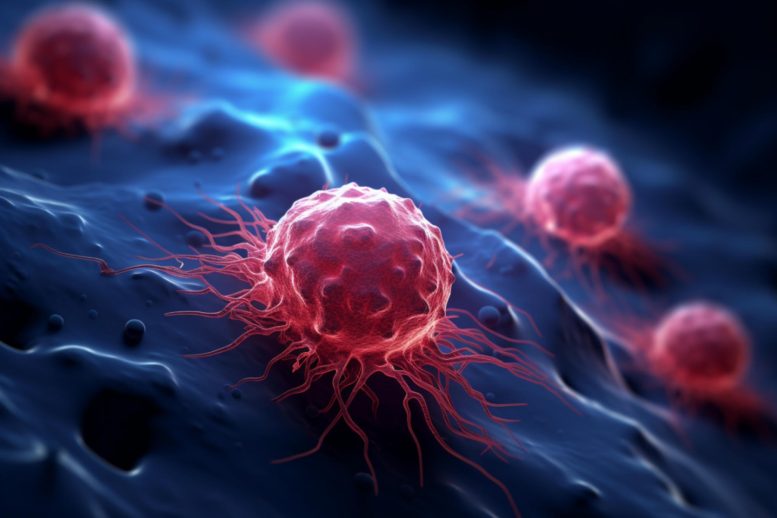
Researchers from Georgia State University and its Perimeter College are actively gathering and analyzing samples of indigenous plants from Ethiopia to explore their disease-fighting capabilities.
Research centered on gathering and studying plants indigenous to Ethiopia is yielding promising results in combating cancer, particularly cervical cancer. A new partnership has enabled a team from Georgia State University to contribute valuable insights to the scientific community regarding these potent compounds.
The research underway includes a collaboration among experts at Georgia State University and Georgia State’s Perimeter College, Addis Ababa University in Ethiopia, and the Winship Cancer Center at Emory University.
Paulos Yohannes is a chemistry professor and serves as associate dean for STEM/research at Georgia State University’s Perimeter College. He is leading the work as part of the Carnegie African Diaspora Fellowship Program (CADFP). The research includes collecting samples of plants native to Ethiopia that are recognized for their medicinal benefits to test their effectiveness in fighting disease.
Yohannes said it is common for practitioners in Africa to work with natural products, but a lack of access to instrumentation has hampered their ability to publish research. The Carnegie Fellowship aims to match an African-born professor with an African university to enhance research and teaching. Yohannes is the first Georgia State faculty member to be selected for the prestigious program.
Early Success and Continued Efforts
Thanks to his early success with the fellowship last year, Yohannes has returned to Ethiopia to continue his work. He said many pharmacological medicines in use today come from chemicals obtained from plants. In the field of oncology, their medical significance is widely acknowledged. The bioactive chemicals that make up the chemical core of the plant can have antitumor compounds that include flavonoids, tannins, curcumin, resveratrol, and others.
“There are many medicinal plants that have been used by the traditional healers for centuries,” Yohannes said. “At this moment, preliminary studies have shown that we are working with plant extracts that exhibit anticancer activities.”
Yohannes is working with Georgia State Regents’ Professor and Georgia Research Alliance Eminent Scholar Binghe Wang to analyze the plants and compounds. So far, the team has analyzed more than 30 plant extracts from Ethiopia and found several of them to be active on cervical cancer cells. Yohannes said the work underway by Wang and his team of postdoctoral and student researchers has yielded important results, including the discovery of a new compound not found in the existing database.
Extraction and Testing Processes
Materials from the plants are extracted by an Ethiopian team for the research. Professor Ermias Dagne, who leads the group, has worked on the chemistry of medicinal plants for more than 45 years. They are sent to Georgia State as crude extracts or isolated pure compounds to test their effectiveness in fighting disease. The cytotoxicity tests are performed on HeLa cells (cervical cancer) for the determination of half-maximal inhibitory concentration (IC-50), which is the most widely used screening method of a drug’s efficacy.
“There are two important aspects to such a research project,” Wang explained. “The first is to assess these extracts or purified compounds for biological activity, starting with cell culture experiments. In searching for anticancer compounds, we look for those that exhibit potent cytotoxicity against cancer cells. Once activity is confirmed, there is a set of spectroscopic experiments that we conduct to confirm the structures of the compounds.”
The research team is working with compounds obtained from one plant identified by a botanist as Commiphora sp. nov., a plant endemic to Ethiopia that grows in a remote area. It is just one of dozens of medicinal plants that are showing promise.
Several compounds isolated from these plant extracts were also spectroscopically analyzed by Mass Spectrometry Facility Director Siming Wang and Zhenming Du, senior scientist and director of the Nuclear Magnetic Resonance (NMR) facility at Georgia State. Researchers there are working to interpret the findings while other samples are being analyzed for anticancer activity by experts at the Winship Cancer Center at Emory University under the leadership of Wei Zhou, who heads the Cell and Molecular Research Program.
Yohannes said four of those plant extracts have shown to have higher activities not only on cervical cancer cells, but also on other cell lines. He said the researchers have noted “interesting cell death pathways” and more samples are on the way for further analysis.
“Eighty percent of the Ethiopian population uses traditional medicine to treat their illnesses. We know that these plants have some medicinal values,” Yohannes said. “I am encouraged that this research will yield some extraordinary findings that will encourage more extensive study.”